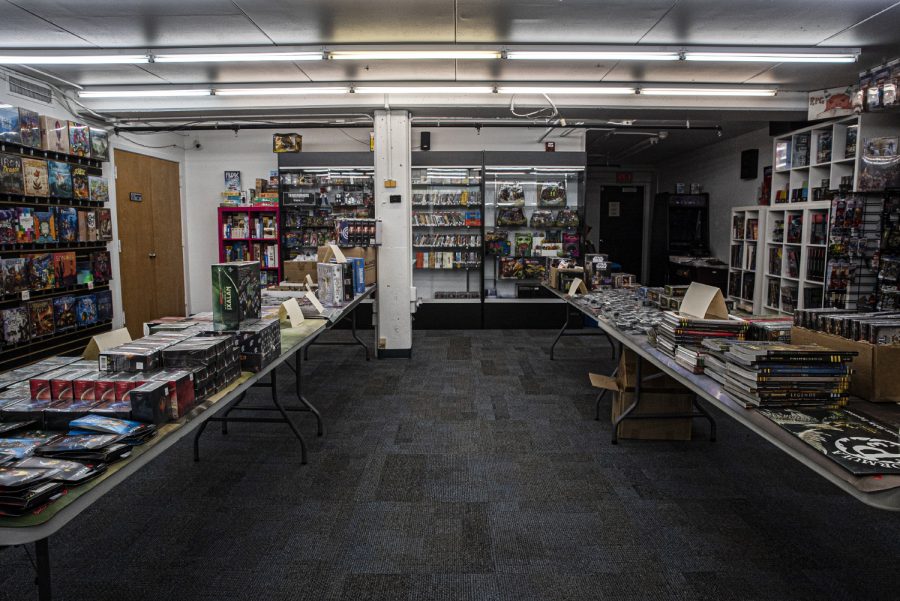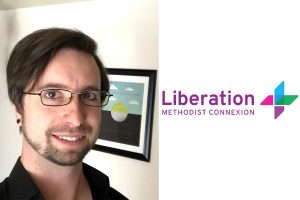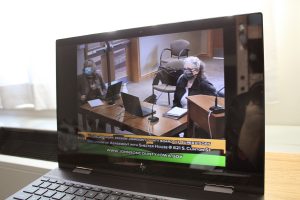Rape Victim Advocacy Program launching Dungeons & Dragons therapy sessions
The Rape Victim Advocacy Program is introducing a new group therapy session using the roleplaying of Dungeons and Dragons to provide another method for victims to process their trauma and go through the healing process.
Boxed board games are seen at Critical Hit Games in Iowa City on Thursday, Dec. 10, 2020.
December 10, 2020
The Rape Victim Advocacy Program will begin hosting game sessions of the popular tabletop roleplaying game, Dungeons and Dragons, to help victims of sexual violence identify and address their trauma.
The idea came from University of Iowa master’s student Kayla Dick, who is a RVAP intern. She said she was excited to see how other students would respond to this new type of therapy.
“It can be really helpful to be able to transfer trauma and experiences and process it through fictional characters,” she said. “Dungeons and Dragons takes on different appearances for different groups, and it’s always fun to see what that looks like.”
Dick said she has played Dungeons and Dragons for about five years now, calling it the only thing keeping her sane during the pandemic. She said she uses a combination of Zoom, dice-rolling website Roll20, and Discord to play socially distant.
While RVAP’s Dungeons and Dragons sessions will be on Zoom, Dick said she hopes there will be an opportunity to move to in-person play in the future. She said she received some online training in using tabletop games as therapy from Washington-based nonprofit, Game 2 Grow.
RVAP’s Dungeons and Dragons groups will consist of four to six members, with one group, led by Dick, meeting on Mondays and the other meeting on Wednesdays. Sessions begin on Jan. 26 and will run until May 2. Gameplay sessions are expected to last around two hours, with a brief introductory portion, gameplay, and time to process and discuss at the conclusion, she said.
Dick said that the last half hour would resemble more of a traditional therapy session. The two groups will be playing different gameplay modules based upon the group leader’s preferences.
University of Iowa junior Rebecca L. Evans, who is also a RVAP volunteer, said she will run Wednesday’s games. She said the focus of her group will be to allow the members to take initiative in making decisions.
RELATED: Local advocates against domestic violence address COVID-19 social distancing
“Since I was little, I have loved everything monster related, anything dragons or mythical. I love the roleplaying aspect,” she said. “I’m really going to want to work with the players on where their characters come from and give them a lot of chances to interact with non-players in the game. You can help make decisions, take initiative with what’s happening in the story line, which can be very different when you’ve experienced a lack of power. Dungeons and Dragons is a venue that you have some control in.”
RVAP’s volunteer coordinator Storm O’Brink has been working in victim advocacy for five years and started with RVAP in October of 2017. They said they are excited to see this new project unfold.
“Our organization is very pro non-traditional therapy,” O’Brink said. “We’ve noted that some survivors who come from [non-Western] cultures don’t always benefit from more traditional kinds of therapy. Talk-based therapy doesn’t work for everyone, so we are always looking for nontraditional therapy-based routes for more complex forms of trauma.”
O’Brink said that while their personal workload was busier than it had ever been, they still found time to learn the rules of Dungeons and Dragons from their friends to help with Dick’s project.
Assistant Director at Sexual Assault Services Katryn Duarte said roleplaying is a method those in therapy can use to work on the healing process from trauma.
She said Dungeons and Dragons will allow individuals to gain skills to deal with trauma. She said other forms of trauma, oppression, and microaggressions activate similar parts of the brain, so this therapy method is not just specifically for sexual violence.
“For folks that have experienced this form of trauma, talking about this in therapy is triggering and retraumatizing,” Duarte said. “There need to be other ways to let it out of your body without language. Roleplaying is one way, art and theatre are other ways, and then that weight is not as heavy, and you are able to work on the healing process. I can see how it allows folks to connect on different levels and build skills without knowing you’re building skills.”






